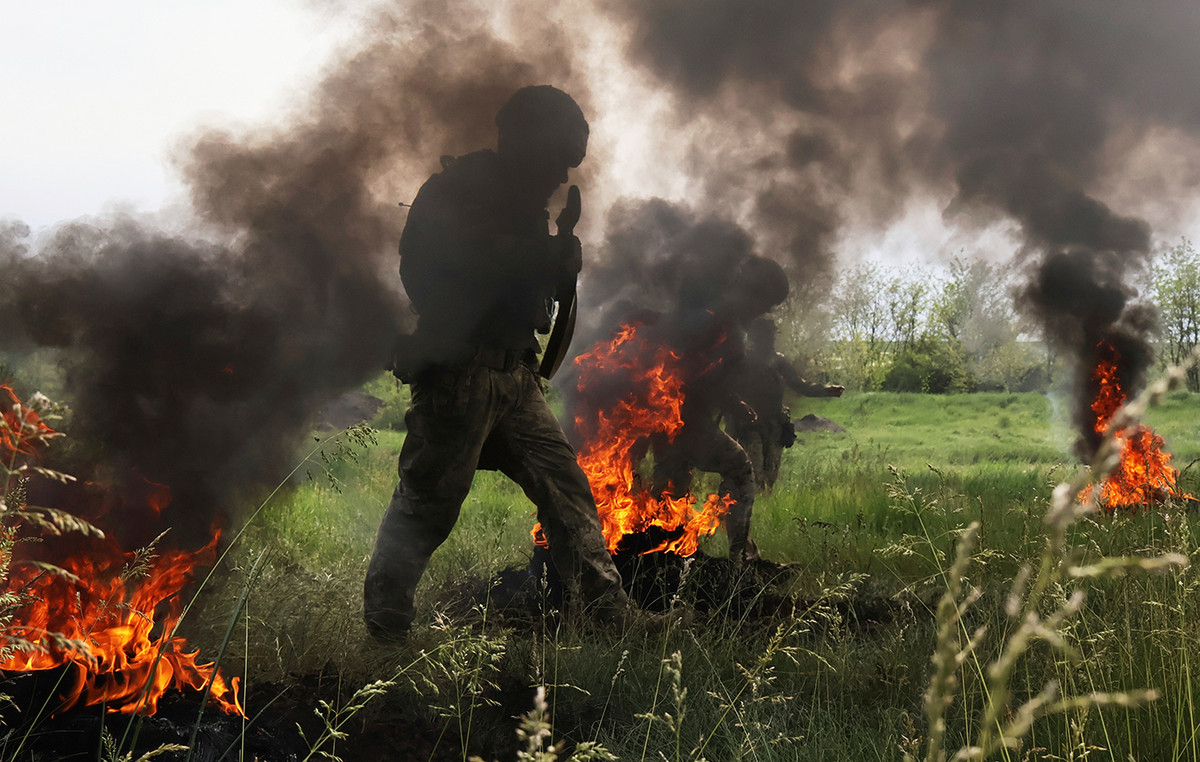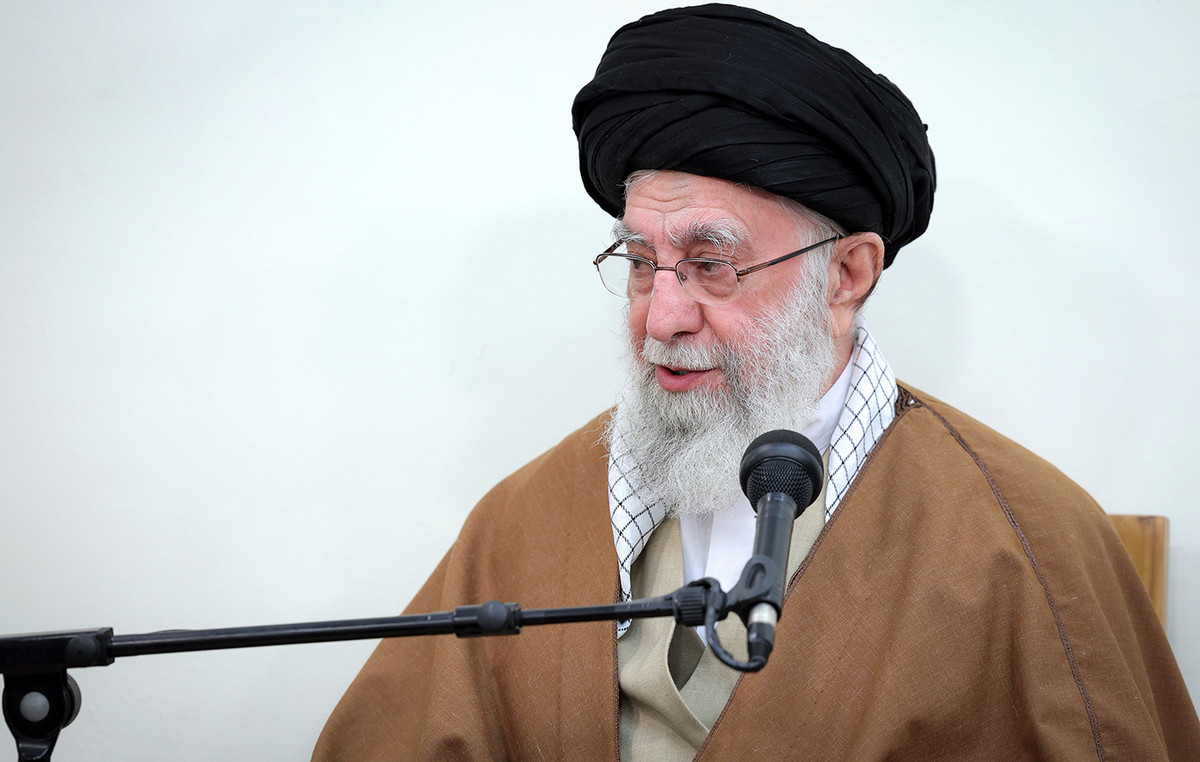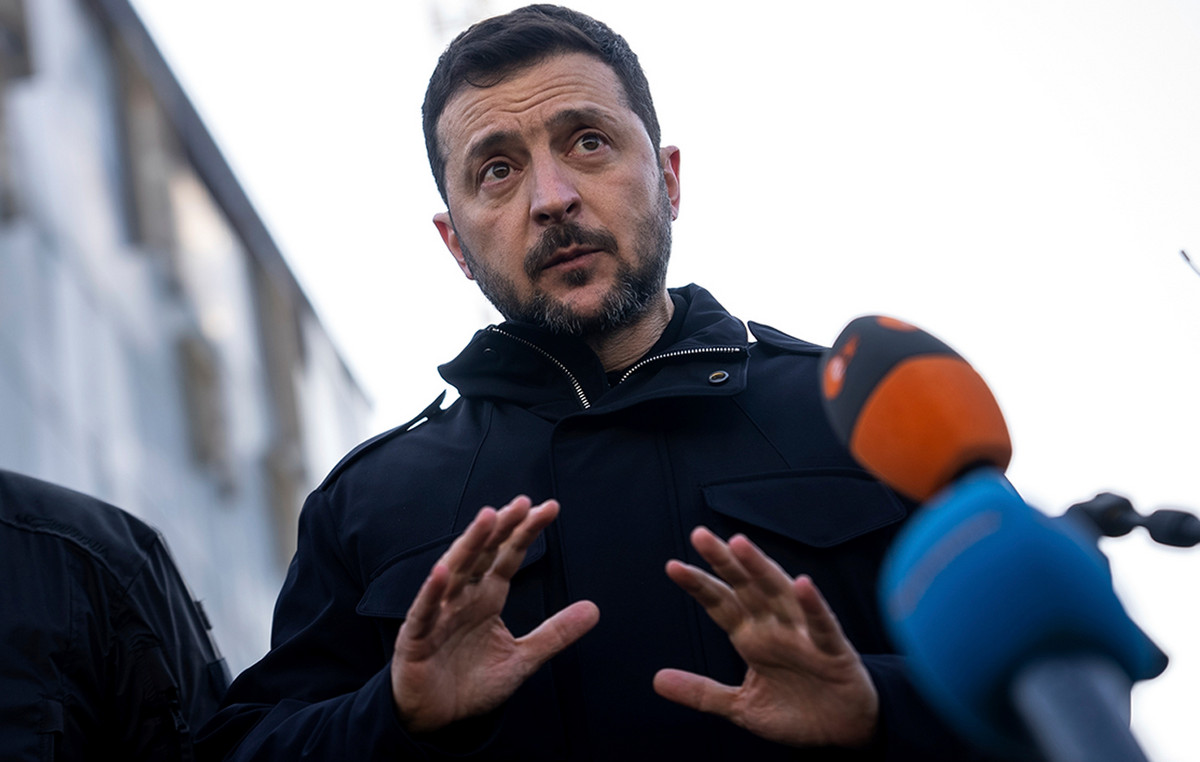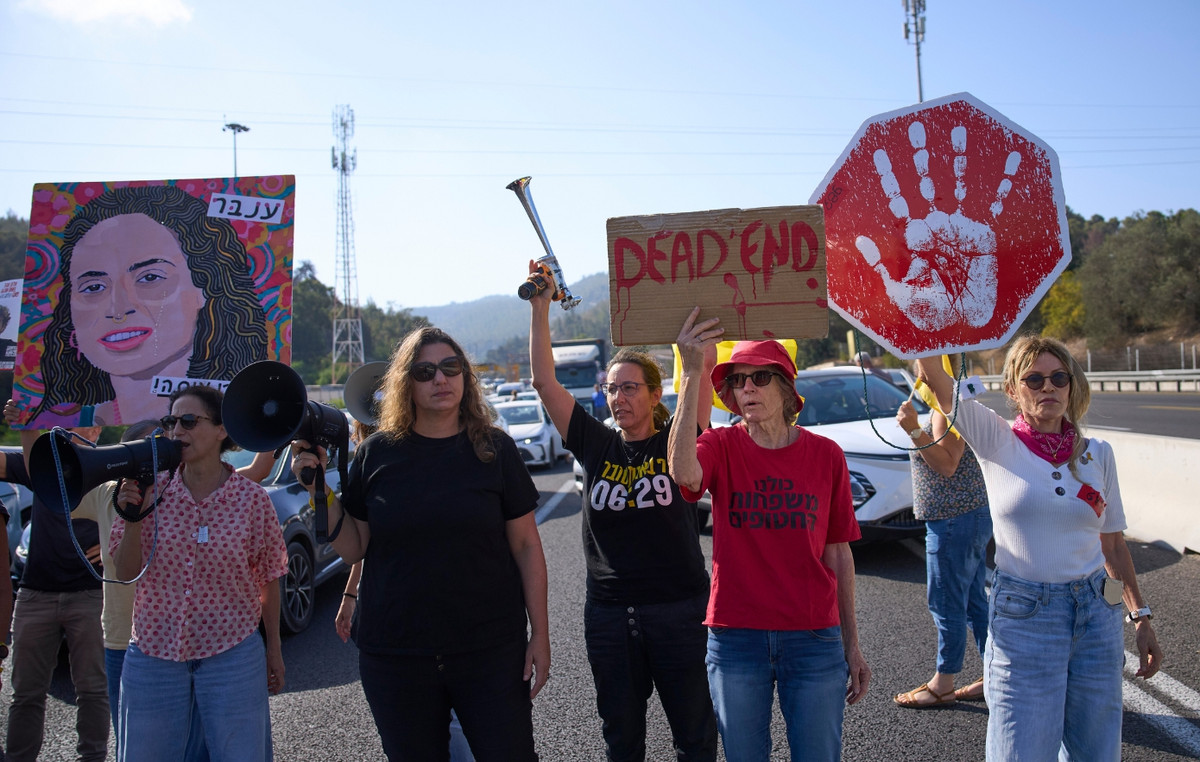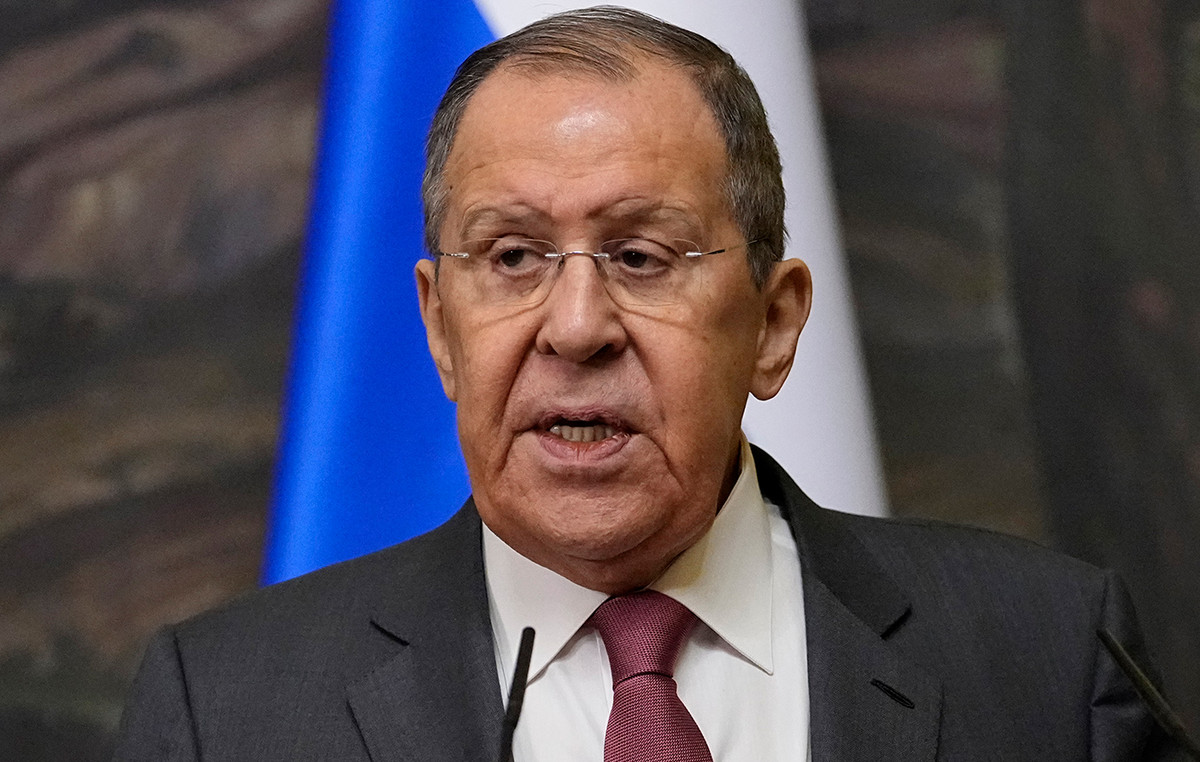Moored eight kilometers off the coast of Yemen for more than 30 years, a decaying supertanker carrying a million barrels of oil is finally being unloaded by a United Nations-led mission in hopes of averting what threatened to be one of the world’s worst ecological disasters. world in decades.
Experts are now delicately handling the 47-year-old vessel – called the FSO Safer – working to remove the crude oil without the tanker falling apart, the oil exploding or a massive spill occurring.
Sitting atop the Endeavor, the UN rescue ship overseeing the offloading, David Gressly, UN Resident and Humanitarian Coordinator for Yemen, David Gressly, said the operation is estimated to cost US$141 million. and is drawing on the expertise of SMIT, the dredging and offshore contractor that helped dislodge the Ever Given vessel, which blocked the Suez Canal for nearly a week in 2021.
Twenty-three UN member states are funding the mission, with another US$16 million (about R$75 million) coming from private sector contributors.
Donors include Yemen’s largest private company, HSA Group, which pledged US$1.2 million (about R$5.6 million) in August 2022. The UN has also engaged in a unique crowdfunding effort, contributing to the fund that took a year to raise, according to Gressly.
The team is pumping between 4,000 and 5,000 barrels of oil every hour and has so far transferred more than 120,000 barrels to the replacement vessel carrying the offloaded oil, Gressly said. The complete transfer should take 19 days.
The tanker was carrying one million barrels of oil. That would be enough to power up to 83,333 cars or 50,000 US homes for an entire year. The oil on board is worth around US$80 million (about R$377 million), and who gets it remains a contentious issue.
Why has the UN been sounding alarms about this “ticking time bomb”?
The ship has been abandoned in the Red Sea since 2015 and the UN regularly warns that the “time bomb” could break due to its age and condition, or the oil it contains could explode due to the highly flammable compounds in it.
FSO Safer retained four times the amount of oil spilled by Exxon Valdez in Alaska in 1989, which resulted in a slick that covered 1,300 miles of coastline.
A potential spill from this vessel would be enough to make it the fifth largest oil spill from a tanker in history, a UN website said. The cost of cleaning up such an incident is estimated at $20 billion.

The Red Sea is a vital strategic waterway for global trade. At its southern end is the Bab el-Mandeb Strait, through which almost 9% of the total oil traded by sea passes.
And to the north is the Suez Canal that separates Africa from Asia. Most oil and natural gas exports from the Persian Gulf that transit through the Suez Canal pass through the Bab el-Mandeb, according to the US government agency Energy Information Administration.
The sea is also a popular diving spot that has an impressive underwater ecosystem. In places, its shores are dotted with tourist resorts, and its east coast is the site of ambitious Saudi development projects worth hundreds of billions of dollars.
A complex and risky operation
The mission’s first step was to stabilize and secure the vessel to prevent it from collapsing, Gressly said. This has already been achieved in recent weeks.
“There are a number of things that need to be done to stop the oil from exploding,” Gressly told CNN , including pumping gases into each of the 13 compartments that contain the oil. The pumping systems were rebuilt and some of the lighting was fixed.
Temporary floating barriers used to contain marine spills were placed around the vessel to capture potential spills.
The second step is to transfer the oil to the replacement vessel, which is already under way.

After the Safer is emptied, it must be cleaned to ensure no oil residue is left, Gressly said. The team will then attach a giant buoy to the replacement vessel until a decision is made on what to do with the oil.
“The transfer of oil to [a embarcação de substituição] it will avoid the worst case scenario of a catastrophic spill in the Red Sea, but it’s not the end of the operation,” said Gressly.
Although the hardest part of the operation is over, a spill can still occur. And even after handover, the tanker “will continue to pose an environmental threat resulting from the sticky residue of oil inside the tank, especially as the tanker remains vulnerable to collapse”, the UN said, stressing that to finish the job, an extra US$22 million (about R$103 million) is urgently needed.
What if a spill occurs?
A spill would close Yemeni ports on which its impoverished people depend for food and fuel aid, impacting 17 million people during an ongoing humanitarian crisis caused by the country’s civil war and a Saudi-led military assault on the country.
Oil could leak onto African shores, damaging fish stocks for 25 years and affecting up to 200,000 jobs, according to the UN.
A potential leak would have “catastrophic” public health ramifications in Yemen and neighboring countries, according to a study by researchers at the Stanford University School of Medicine. Yemen, Saudi Arabia and Eritrea would shoulder the brunt.

Air pollution from a spill of this magnitude would increase the risk of hospitalization for cardiovascular or respiratory diseases for those directly exposed by 530%, according to the study, which also reported that the spill could cause a range of other health problems, such as psychiatric and neurological disorders.
“Given the scarcity of water and food in this region, it could be one of the most disastrous oil spills ever known in terms of impacts on human life,” said David Rehkopf, professor at Stanford University and senior author of the study, to the CNN .
Up to 10 million people would struggle to obtain clean water and 8 million would have their access to food threatened. Red Sea fishing in Yemen could be “almost completely eliminated,” Rehkopf added.
The tanker has been a problem for many people in Yemen in recent years, Gressly said.
The sentiment on social media surrounding the oil removal is very positive, as many in Yemen feel the tanker is a “threat that is over their heads”, he said.
Who gets the oil?
The oil tanker issue remains a sticking point between the Houthi rebels who control northern Yemen and the internationally recognized government, the two main warring sides in the country’s civil conflict.
Though the war, which has seen hundreds of thousands of people killed or injured, and Yemen left in ruins, has subsided of late, it is far from resolved.
Ahmed Nagi, a senior analyst for Yemen at the think tank International Crisis Group in Brussels, Belgium, sees the Safer tanker issue as “an embodiment of the conflict in Yemen as a whole.”
“The government views the Houthi militias as an illegitimate group that controls the tanker, and the Houthis do not recognize [o governo]”, said Nagi to CNN .
The vessel was abandoned after the outbreak of the Yemeni civil war in 2015. Most of the oil belongs to the Yemeni state company SEPOC, experts say, and there are some reports that it may be sold.
“From a technical point of view, the owner of the tanker and the oil inside it is SEPOC,” Nagi said, adding that other energy companies working in Yemen may also share ownership of the oil.
The main issue, added Nagi, is that Safer’s headquarters is in the government-controlled city of Marib, while the tanker is in a Houthis-controlled area. The Safer is anchored off the coast of the western province of Hodeidah.
Discussions to determine ownership of the oil are ongoing, Gressly said. Rights to the oil are unclear and there are legal issues that need to be resolved.
The UN coordinator hopes that the days needed to unload the oil will buy time for “political and legal discussions that need to take place before the oil can be sold”.
While the UN can resolve half of the issue, Nagi said, the oil situation still needs to be understood.
“He still poses a danger if we keep him close to a conflict zone,” he said.
Source: CNN Brasil
Bruce Belcher is a seasoned author with over 5 years of experience in world news. He writes for online news websites and provides in-depth analysis on the world stock market. Bruce is known for his insightful perspectives and commitment to keeping the public informed.

